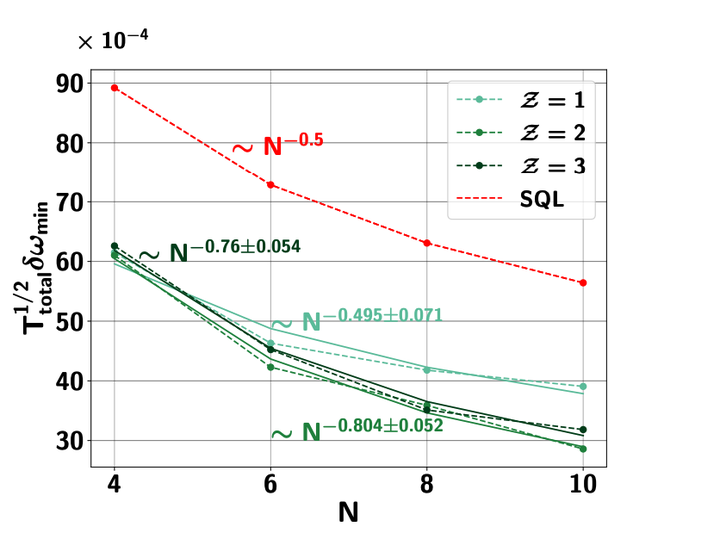 Variation of uncertainity in the magentic field with system-size N. Lower the better.
Variation of uncertainity in the magentic field with system-size N. Lower the better.
Abstract
The typical bound on parameter estimation, known as the standard quantum limit (SQL), can be surpassed by exploiting quantum resources such as entanglement. To estimate the magnetic probe field, we propose a quantum sensor based on a variable-range many-body quantum spin chain with a moderate transverse magnetic field. We report the threefold benefits of employing a long-range system as a quantum sensor. First, sensors with quasi-long-range interactions can always beat the SQL for all values of the coordination number, while a sensor with long-range interactions does not have this ubiquitous quantum advantage. Second, a long-range Hamiltonian outperforms a nearest-neighbor (NN) Hamiltonian in terms of both estimating precision and system-size scaling. Finally, we observe that the system with long-range interactions can go below the SQL in the presence of a high temperature of the initial state, while sensors having NN interactions cannot. Furthermore, a sensor based on the long-range Ising Hamiltonian proves to be robust against impurities in the magnetic field and when the time-inhomogeneous dephasing noise acts during interaction of the probe with the system.
